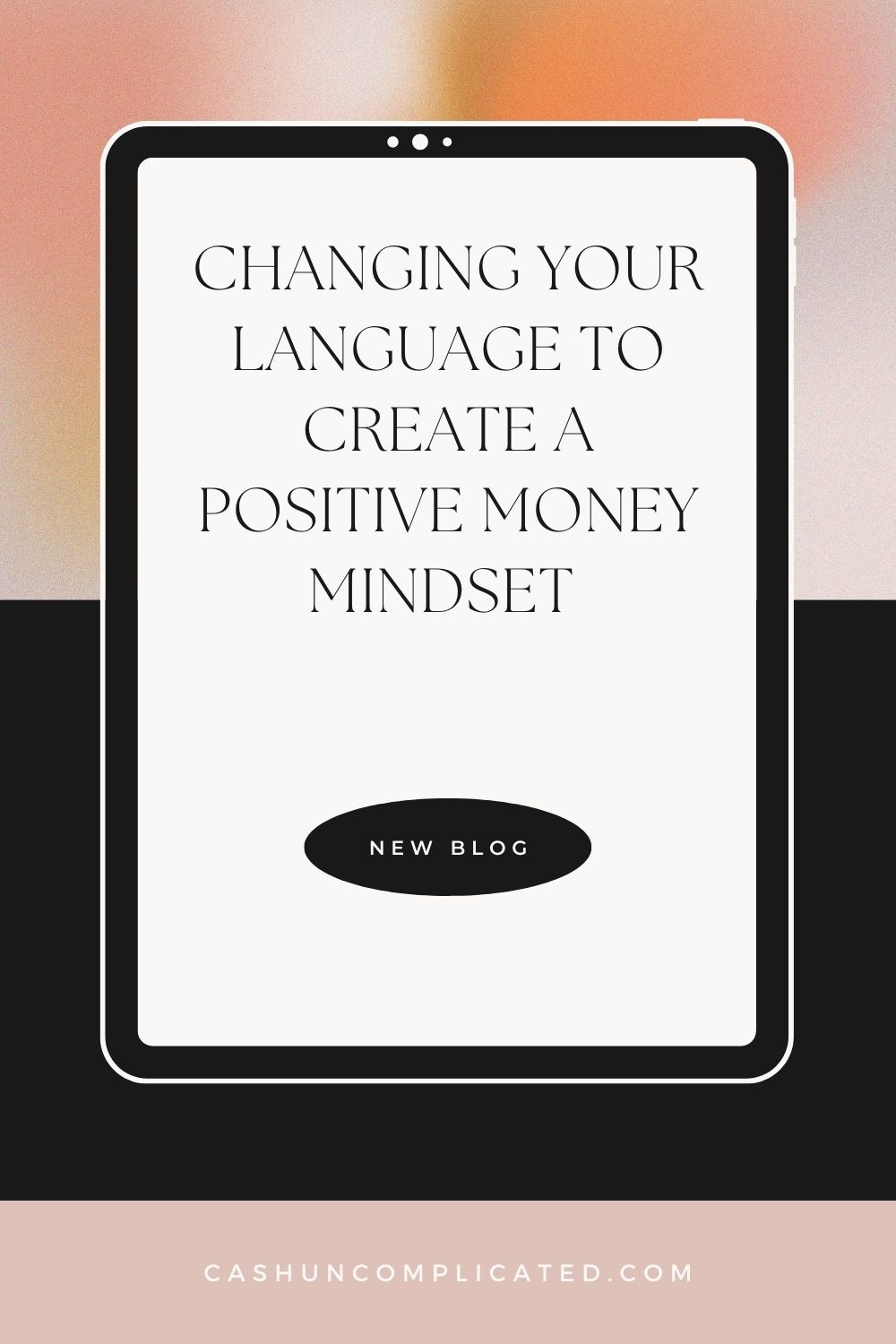Financial planning quotes pack a lot of punch. They contain lots of wisdom in a short amount of words. We can pull ideas, thoughts, inspiration, and guidance from quotes—and remember them for a lifetime.
As a new investor, financial planning can be tricky. During the planning process, many questions are likely to come up:
- What am I investing for?
- Is it worth it?
- What if I pick the wrong investment?
- Is it possible to lose money?
- And many more
Fortunately, there are resources available—nobody has to go it alone. In addition to the traditional resources such as financial planners, CPA’s, lawyers (and of course Google), there’s another less thought of resource. Quotes–more specifically financial planning quotes.
I’ve compiled a list of 25 of the best financial planning quotes (in no particular order) that have helped me, and that I know can help you. Many of these quotes I’ve memorized, and almost all of them were featured in my book Cash Uncomplicated.
Number 1: Elvis Presley
“Values are like fingerprints. Nobody’s are the same, but you leave ‘em all over everything you do.” –Elvis Presley
Leading off the financial planning quotes list with none other that the King of Rock and Roll: Elvis Presley. Often ignored, values are an incredibly important part of financial planning. Values are your why—or your reasons for saving and investing.
If you’re not planning your personal finances around your values, what are you planning for? Money is a tool to help us live our best lives. Living a financial life according to our values is a crucial component of that formula.
As a quick example, if a high income earner values taking several family vacations every year, but can’t get away from the office–their behavior is incongruent with their values. Changes need to be made.
Number 2: James Frick
“Don’t tell me where your priorities are. Show me where you spend your money and I’ll tell you what they are.” –James Frick
Similar to the first quote, James Frick’s quote also addresses values. This quote inspires the question of: Is your spending in alignment with your values? Someone who values time with family but works extra to accumulate expensive cars and electronics is out of alignment.
More time is spent working to accumulate material items than is spent with family. Changes need to be made to get back in alignment.
Number 3: Henry Ford
“Whether you think you can or you can’t, you’re right.” –Henry Ford
This is one of my favorite financial planning quotes because it’s so straightforward. Not much ambiguity or room for interpretation here. It’s all about making a choice on your mindset and thinking. Either you can or you can’t.
What do you believe about your personal finances? Do you believe like I do that you have control over your financial behavior and can make choices that align with your values? That we can make a financial plan that will help us to lead our best life?
I used to have a very poor attitude about my personal finances. Then I changed my attitude and my mindset. Not coincidentally, my personal finances also improved almost parallel to my mindset change.
Number 4: Napoleon Hill
“When riches become to come, they come so quickly, in such great abundance, that one wonders where they have been hiding all those lean years.” –Napoleon Hill
Success in personal finance takes time—it does not come overnight. Nobody decides one day they are going to become financially successful and wake up the next day a success. It takes a change in attitude and choices to begin finding success.
To me, this quote is about compounding in two ways:
- Number One: Months and years of positive choices that add up seemingly all at once
- Number Two: compound interest that seems to multiply like magic
For example, it can take some time to accumulate one million dollars. However, at a 10 percent interest rate, one million dollars more than doubles in less than eight years. In less than another eight years, it more than doubles again to $4,594,973. Here’s the math:
- $1,000,000 at 10 percent interest for eight years: $2,143,589
- $2,143,589 at 10 percent interest for eight years: $4,594,973
Number 5: Will Rogers
“Too many people spend money they haven’t earned, to buy things they don’t want, to impress people they don’t like.” –Will Rogers
The next on the list of financial planning quotes inspires a lot of questions for me:
- What am I working toward?
- What are my financial and life goals?
- Is my money going to investments or to consumer goods?
- Am I buying things because I want them or because I’m trying to impress others?
- Is it possible that I am spending beyond my means?
The answers to these questions will help you align your true values with your spending. Are you aligned?
Number 6: Oprah Winfrey
“You don’t have to do what everyone else is doing.” -Oprah Winfrey
This quote relates to many areas of life—health, relationships, financial planning, etc. I love this as a financial planning quote because so many people base their personal finance decisions on what other people are doing.
Buy this car because the neighbor bought one, move to this neighborhood because a couple friends moved to the area, go on this vacation because your good friend just went.
The list goes on and on. Financial planning should be based on your needs, wants, and values—not what others are doing. This quote perfectly encapsulates that concept.
Number 7: Jim Rohn
“You are the average of the five people you spend the most time with.” –Jim Rohn
It might seem contradictory to have this quote directly after Oprah Winfrey’s powerful quote about being independent of what others are doing. However, I am going to reframe things so they hopefully make sense. Actively seek out successful people you can learn from.
Not only financially successful people, but successful people in all walks of life like family and career. Actively choosing who we want to spend more time with is a way of taking control of our life. If we choose to hang around financially successful people who engage in value-based spending, keep a budget, and don’t spend to impress others, we are more likely to engage in that behavior ourselves.
Number 8: Warren Buffett
“Do not save what is left after spending; instead spend what is left after saving.” –Warren Buffett
Next on the list of financial planning quotes illustrates one of the most important principles in personal finance—pay yourself first. Most people have it backwards—they spend and then invest as an afterthought. This quote turns that upside down.
Save first, then spend. Pay yourself first. When we pay ourselves first we make sure it gets done. It’s a way of prioritizing so that every month you earn a financial victory by paying yourself before anything else. Over time this habit compounds and helps us to build a financial fortress like we never thought possible.
Number 9: Albert Einstein
“Compound interest is the eighth wonder of the world. He who understands it, earns it…he who doesn’t… pays it. –Albert Einstein
I didn’t understand compound interest in my early years. As a consequence, I paid it and helped make the lenders rich when I should have been making myself wealthy. Once I began to understand the sheer power of compound interest, my financial life changed.
I stopped making the lenders wealthy, and instead contributed to my own wealth. That’s made all the difference. In my book Cash Uncomplicated, I provide a side by side example of someone who understands compound interest compared to someone who doesn’t understand it.
The person who understood it was hundreds of thousands of dollars wealthier with just a small monthly contribution to an asset. The individual who didn’t understand compound interest ended up paying hundreds of thousands to the lender. After a few years they were hundreds of thousands of dollars apart in their net worth.
Number 10: Earl Nightingale
“The mind moves in the direction of our currently dominant thoughts.” –Earl Nightingale
This may not seem like it belongs on a list of financial planning quotes at first glance, but it certainly applies to personal finances (and other areas of life). Money is a tool, and the reason we engage in financial planning in the first place is so we can use that tool to its fullest potential.
When our dominant thoughts are directly related to our life goals, our minds go to work on optimizing those goals. And a huge part of moving towards many life goals relates to improving our personal finances.
For example, someone who wants to travel more, spend more time with their kids, and donate a portion of their income to their favorite charity would be wise to build a solid financial foundation so that they can do all these things. Someone stressing over consumer debt and struggling to pay the bills isn’t going to have the freedom to participate in the same experiences as someone without those financial issues.
Number 11: Jean Chatzky
“Put all of your savings on autopilot, and you likely won’t notice the missing cash.” –Jean Chatzky
Automate, automate, automate. This is one of the most important principles in all of personal finance. Automate your money and forget about it. You might miss the money for a couple months but that quickly goes away.
We have a way of getting used to the new income and most of us don’t really ever think about it again. I’ve been doing this for years and I can honestly say it’s been one of the most powerful wealth building tools available.
Number 12: Robert Kiyosaki
“10% of the borrowers in the world use debt to get richer—90% use debt to get poorer.” –Robert Kiyosaki
Debt often gets generalized into one category—debt. That’s not the end of the story though. Consumer debt, or bad debt, keeps us from building wealth. Good debt helps build wealth.
To illustrate the point, look at these two examples:
- Bad debt: $4,500 in furniture with monthly payments of $150. Net loss of $150 per month
- Good debt: $1,000 per month loan on a rental property. Tenant pays $1,400 per month in rent. Net gain: $400 per month including cash flow and extra money for vacancies, repairs, capital expenditures, etc.
Number 14: Suze Orman
“Bad debt is sacrificing your future day needs for your present day desires.” –Suze Orman
Bad debt is a cycle. Buy on credit, attempt to pay it off, then put more on credit because most of your money is going to pay off old debts. For some, this cycle continues for years and years–endless debt and stress.
The key is to get out of the cycle and into having the ability to pay for things without using bad debt. The new cycle becomes save and invest, have enough left over for the things we want to buy. Rinse and repeat.
Related:
The Psychology of Paying Off Bad Debt
Number 15: Thomas Tusser
“A fool and his money are soon parted.” Thomas Tusser
Next on the list of financial planning quotes comes from Thomas Tusser. To be good with money, we have to learn about it. We don’t need to become “experts”, but we do need to know “enough.” Anyone can learn about personal finances with just a little bit of time and energy.
Think about getting in shape. We need to learn at least some of the basics before we’re actually in shape. We need to learn a little about nutrition, different types of workouts, and how our body responds to certain exercises and foods.
It doesn’t take a lot of time or energy, you just need a basic knowledge. Personal finance is no different.
Read a few books, listen to some podcasts, talk to financially successful people. Learn enough about the basics and then take action.
Number 16: Dave Ramsey
“I’m not against people having new cars. I’m against them having you. We spend a tremendous amount impressing somebody at the stoplight who we’ll never meet. It makes you broke and keeps you broke.” –Dave Ramsey
There’s nothing wrong with buy a nice car or a new car. The problem is when people purchase cars they can’t afford–especially cars with large monthly payments. Car payments are a suffocating consumer debt at the start of every month that takes a sizable chunk of your income.
I look at personal finances as a pyramid. The base of the pyramid is financial strength, which includes zero consumer debt. Car payments are a large consumer debt that significantly weakens the base of the pyramid.
Number 17: Warren Buffett
“If you buy things you don’t need, soon you will have to sell things you need.” –Warren Buffett
The wisdom of Warren Buffet is never ending. Live within your means and buy only what you need and value. Simple advice but far too many people ignore it and don’t follow this principle.
The bill will someday come due for the person who spends beyond their means. They may get away with it for a year or two, but financial behavior like this will eventually catch up to anyone.
Number 18: Manoj Arora
“Saving is a great habit, but without investing and tracking, it just sleeps.” –Manoj Arora
It would be nice if we all could store money under our mattresses or keep it in a checking account and forget about it. The reality is we have to beat inflation through investing.
Money saved but not invested loses its purchasing power and becomes worth less and less every year. At a five percent rate of inflation, that $10,000 you saved last year only has the purchasing power of $9,500. And it will continue to erode if not invested.
Number 19: Warren Buffett
“Never depend on single income. Make investments to create a second source.” –Warren Buffett
Most people work at a job, get a paycheck, and use that paycheck to pay for life. I did this for years as well, as my paycheck was my only source of income.
Investments create that second, third, fourth, or hundredth income stream—there is no limit to how many any one person can have. Multiple income streams not only provide security but they are also an incredibly powerful wealth building tool if reinvested.
Think about two people, Jim and Sally:
- Jim makes $80,000 per year from his job
- Sally makes $80,000 from her job, $30,000 per year in rents collected, $9,000 per year in stock dividends, $12,000 per year in interest collected from private loans, and $19,000 per year in business profits from a company she passively invests in.
Who is in a better position, Jim or Sally?
Number 20: George Clason
“Every gold piece is to work for you. Every copper it earns is its child that can also earn for you. If you would become wealthy, then what you save must earn, and its children must earn, that all may help to give you the abundance you crave.” –George Clason
A direct financial planning quote from the Richest Man in Babylon, George Clason perfectly explains how investing works. Invest a sum, that sum makes money, the sum from that investment then makes money, so on and so forth. It compounds into exponential wealth.
It all starts with investing–you have to invest something to get the process of compounding started. Your original capital will go to work for you, as will the money your original capital earned, and the money that money earned.
Number 21: Abigail Van Buren
“If you want your children to turn out well, spend twice as much time with them, and half as much money.” –Abigail Van Buren
We all want what’s best for our children. We all want to be great providers and help them lead a happy and productive life. There’s a balance though on how much to give them.
Giving your child every single toy they want or showering them with money when they are teenagers may provide temporary happiness–but what lessons are we teaching? This is a great quote because it challenges us to prioritize giving our time to our children rather than money or material goods. Time is also the one thing we can’t get back or repeat.
Number 22: Michelle Singletary
“Money may not buy you love, but fighting about it will bankrupt your relationship.” –Michelle Singletary
Depending on what study you read, money almost always makes the top three in what couples argue about. And it often is number one. Money can’t buy happiness or love, but it sure makes things easier when couples aren’t arguing about it.
What I like about this financial planning quote is that it’s not suggesting anyone become money-centric or make it the focus of your relationship. But it does acknowledge that money fights do not end well, especially for couples who consistently argue about money.
Number 23: Tony Robbins
“Setting goals is the first step in turning the invisible into the visible.” –Tony Robbins
This financial planning quote challenges us to set goals and to make the invisible the reality. This of course applies to every area of life, including financial planning. People have a tendency to think that if we just work hard in our jobs that things will turn out ok financially.
The reality is we need to set financial goals. Financial goals give our minds something to work toward. And when we work toward something, we get creative and find ways to get it done. Money isn’t everything in life but it is a great tool and resource if used properly and responsibly.
Related:
Crushing Your Long-Term Financial Goals
Short-Term Financial Goals: Plus 29 Ideas to Start
Number 24: Benjamin Franklin
“An investment in knowledge always pays the best interest.” –Benjamin Franklin
Compounding doesn’t only apply to money. It also applies to knowledge and learning. Knowledge exponentially compounds over time, and creates incredibly powerful results.
Think about someone who reads about a specific subject every day for a half hour per day, five days a week. Now think about someone with this habit who consistently executes for a half hour per day, five days a week for five years. Here’s the math:
- Half hour per day of reading, five days a week: 150 minutes per week
- 150 minutes per week multiplied by 52 weeks: 7,800 minutes
- 7,800 minutes per year multiplied by five years: 39,000 minutes
How much knowledge could you accumulate if you spent 39,000 minutes reading from a quality book over a five-year period? You’d probably become a subject matter expert.
Number 25: Jim Rohn
“Financial independence is the ability to live from the income of your own personal resources.” –Jim Rohn
Last, but not least of the financial planning quotes comes from Jim Rohn. Most people rely on income from a job and use that income to pay for bills and life costs. Which is fine as long as long as the company doesn’t downsize, go out of business, or reduce salaries.
This is also assuming you’re physically and mentally able to work, your family remains in good health, and you don’t have any life situations arise where you need to be out of work for an extended period of time.
Financial independence provides you with the ability to live off your own resources. Which provides a high level of freedom and choices, allowing you to live your best life.













